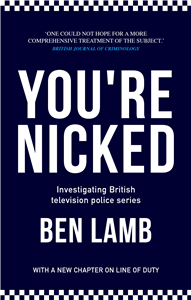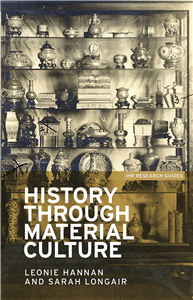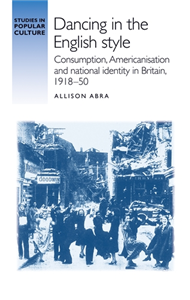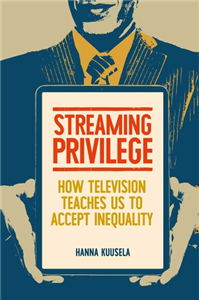Your Search Results
-
Promoted ContentAfrican historyJanuary 2017
Humanitarian aid, genocide and mass killings
Médecins Sans Frontières, the Rwandan experience, 1982–97
by Jean-Hervé Bradol. Series edited by Bertrand Taithe
Throughout the 1990s, Médecins Sans Frontières (MSF) was forced to face the challenges posed by the genocide of Rwandan Tutsis and a succession of outbreaks of political violence in Rwanda and its neighbouring countries. Humanitarian workers were confronted with the execution of almost one million people, tens of thousands of casualties pouring into health centres, the flight of millions of people who had sought refuge in camps and a series of deadly epidemics. Drawing on various hitherto unpublished private and public archives, this book recounts the experiences of the MSF teams working in the field. It is intended for humanitarian aid practitioners, students, journalists and researchers with an interest in genocide and humanitarian studies and the political sociology of international organisations.
-
Promoted Content
-
 Trusted Partner
The ArtsJuly 2023
Trusted Partner
The ArtsJuly 2023You’re nicked
Investigating British television police series
by Ben Lamb
You're nicked is the first comprehensive study of television police series in the UK. It reveals how British television's most popular genre has developed stylistically, politically and philosophically from 1955 to the present. Each chapter focuses on a particular decade, investigating how the most-watched series represent the inner workings of the police station, the civilian life of criminals and the private lives of police officers. This new approach unearths the complex ideology underpinning each series and discerns the key insights the genre can provide into the breakdown of the post-war settlement. Offering insightful readings of police series from Dixon of Dock Green to Happy Valley via The Sweeney, The Bill and Cracker, the book is a must-read for crime-drama enthusiasts worldwide. This new paperback edition features an extensive epilogue on Line of Duty and other Jed Mercurio creations.
-
 Trusted Partner
Philosophy: epistemology & theory of knowledgeJune 2017
Trusted Partner
Philosophy: epistemology & theory of knowledgeJune 2017Critical theory and epistemology
The politics of modern thought and science
by Anastasia Marinopoulou. Series edited by Darrow Schecter
This volume in the Critical Theory and Contemporary Society series explores the arguments between critical theory and epistemology in the twentieth and twenty-first centuries. Focusing on the first and second generations of critical theorists and Luhmann's systems theory, the book examines how each approaches epistemology. It opens by looking at twentieth-century epistemology, particularly the concept of lifeworld (Lebenswelt). It then moves on to discuss structuralism, poststructuralism, critical realism, the epistemological problematics of Foucault's writings and the dialectics of systems theory. This unique work takes a comparative look at structuralism and post-structuralism's epistemological theory with special reference to scientific reason. It also investigates Luhmann's works in epistemology. The aim is to explore whether the focal point for epistemology and the sciences remain that social and political interests actually form a concrete point of concern for the sciences as well.
-
 Trusted Partner
Political ideologiesMay 2017
Trusted Partner
Political ideologiesMay 2017Neoliberal power and public management reforms
by Professor Peter Triantafillou. Series edited by Mark Haugaard
This book examines the links between major contemporary public sector reforms and neoliberal thinking. The key contribution of the book is to enhance our understanding of contemporary neoliberalism as it plays out in the public administration and to provide a critical analysis of generally overlooked aspects of administrative power. The book examines the quest for accountability, credibility and evidence in the public sector. It asks whether this quest may be understood in terms of neoliberal thinking and, if so, how? The book makes the argument that while current administrative reforms are informed by several distinct political rationalities, they evolve above all around a particular form of neoliberalism: constructivist neoliberalism. The book analyses the dangers of the kinds of administrative power seeking to invoke the self-steering capacities of society and administration itself.
-
 Trusted Partner
Industrial / commercial art & designApril 2017
Trusted Partner
Industrial / commercial art & designApril 2017History through material culture
by Series edited by Simon Trafford, Leonie Hannan, Sarah Longair
History through material culture is a unique, step-by-step guide for students and researchers who wish to use objects as historical sources. Responding to the significant, scholarly interest in historical material culture studies, this book makes clear how students and researchers ready to use these rich material sources can make important, valuable and original contributions to history. Written by two experienced museum practitioners and historians, the book recognises the theoretical and practical challenges of this approach and offers clear advice on methods to get the best out of material culture research. With a focus on the early modern and modern periods, this volume draws on examples from across the world and demonstrates how to use material culture to answer a range of enquiries, including social, economic, gender, cultural and global history.
-
 Trusted Partner
AnthropologyMarch 2017
Trusted Partner
AnthropologyMarch 2017Ageing selves and everyday life in the north of England
Years in the making
by Series edited by Alexander Smith, Cathrine Degnen
Seeking to explore what it means to grow older in contemporary Britain from the perspective of older people themselves, this richly detailed ethnographic study engages in debates over selfhood and people's relationships with time. Based on research conducted in a former coal mining village in South Yorkshire, England, Cathrine Degnen explores how the category of 'old age' comes to be assigned and experienced in everyday life through multiple registers of interaction, including that of social memory, in a postindustrial context of great social transformation. Degnen argues that the complex interplay of social, cultural and physical attributes of ageing means that older people can come to have a different position in relation to time and to the self than younger people, unseating normative conventions about narrative and temporality.
-
 Trusted Partner
The ArtsOctober 2024
Trusted Partner
The ArtsOctober 2024Secret Cinema and the immersive experience industry
by Sarah Atkinson, Helen W. Kennedy
-
 Trusted Partner
SociologyJanuary 2017
Trusted Partner
SociologyJanuary 2017Sport in the Black Atlantic
Cricket, Canada and the Caribbean diaspora
by Janelle Joseph. Series edited by John Horne
This book outlines the ways sport helps to create transnational social fields that interconnect migrants dispersed across a region known as the Black Atlantic: England, North America and the Caribbean. Many Caribbean men's stories about their experiences migrating to Canada, settling in Toronto, finding jobs and travelling involved some contact with a cricket and social club. This book offers a unique contribution to black diaspora studies through showing sport as a means of allaying the pain of ageing in the diaspora, creating transnational social networks and marking ethnic boundaries on a local scale. The book also brings black diaspora analysis to sport research, and through a close look at what goes on before, during and after cricket matches provides insights into the dis-unities, contradictions and complexities of Afro-diasporic identity in multicultural Canada. It will be of interest to students and scholars in sociology, sport studies and black diaspora studies.
-
 Trusted Partner
Literature & Literary StudiesJanuary 2017
Trusted Partner
Literature & Literary StudiesJanuary 2017Spenserian satire
A tradition of indirection
by Series edited by J. B. Lethbridge, Rachel Hile, Joshua Samuel Reid
Scholars of Edmund Spenser have focused much more on his accomplishments in epic and pastoral than his work in satire. Scholars of early modern English satire almost never discuss Spenser. However, these critical gaps stem from later developments in the canon rather than any insignificance in Spenser's accomplishments and influence on satiric poetry. This book argues that the indirect form of satire developed by Spenser served during and after Spenser's lifetime as an important model for other poets who wished to convey satirical messages with some degree of safety. The book connects key Spenserian texts in The Shepheardes Calender and the Complaints volume with poems by a range of authors in the late sixteenth and early seventeenth centuries, including Joseph Hall, Thomas Nashe, Tailboys Dymoke, Thomas Middleton and George Wither, to advance the thesis that Spenser was seen by his contemporaries as highly relevant to satire in Elizabethan England.
-
 Trusted Partner
Theatre studiesMarch 2017
Trusted Partner
Theatre studiesMarch 2017Performance art in Eastern Europe since 1960
by Amy Bryzgel. Series edited by Marsha Meskimmon
-
 Trusted Partner
Trusted Partner
-
 Trusted Partner
History of Art / Art & Design StylesOctober 2016
Trusted Partner
History of Art / Art & Design StylesOctober 2016Hot metal
Material culture and tangible labour
by Jesse Stein. Series edited by Bill Sherman, Christopher Breward
The world of work is tightly entwined with the world of things. Hot metal illuminates connections between design, material culture and labour between the 1960s and the 1980s, when the traditional crafts of hot-metal typesetting and letterpress were finally made obsolete with the introduction of computerised technologies. This multidisciplinary history provides an evocative rendering of design culture by exploring an intriguing case: a doggedly traditional Government Printing Office in Australia. It explores the struggles experienced by printers as they engaged in technological retraining, shortly before facing factory closure. Topics explored include spatial memory within oral history, gender-labour tensions, the rise of neoliberalism and the secret making of objects 'on the side'. This book will appeal to researchers in design and social history, labour history, material culture and gender studies. It is an accessible, richly argued text that will benefit students seeking to learn about the nature and erosion of blue-collar work and the history of printing as a craft.
-
 Trusted Partner
Colonialism & imperialismJanuary 2015
Trusted Partner
Colonialism & imperialismJanuary 2015An Anglican British world
by Joseph Hardwick. Series edited by Andrew S. Thompson, John Mackenzie
-
 Trusted Partner
HistoryApril 2017
Trusted Partner
HistoryApril 2017Dancing in the English style
Consumption, Americanisation, and national identity in Britain, 1918–50
by Allison Abra. Series edited by Jeffrey Richards
Dancing in the English style explores the development, experience, and cultural representation of popular dance in Britain from the end of the First World War to the early 1950s. It describes the rise of modern ballroom dancing as Britain's predominant popular style, as well as the opening of hundreds of affordable dancing schools and purpose-built dance halls. It focuses in particular on the relationship between the dance profession and dance hall industry and the consumers who formed the dancing public. Together these groups negotiated the creation of a 'national' dancing style, which constructed, circulated, and commodified ideas about national identity. At the same time, the book emphasizes the global, exploring the impact of international cultural products on national identity construction, the complexities of Americanisation, and Britain's place in a transnational system of production and consumption that forged the dances of the Jazz Age.
-
 Trusted Partner
October 2022
Trusted Partner
October 2022My Father's Secret
The BND, my family and I
by Corinna von Bassewitz
For a long time, Corinna von Bassewitz believed her father was a soldier, later on that he was a diplomat. Then, at the age of 16, she learnt something unbelievable: he had been a secret agent for the Bundesnachrichtendienst (BND, Germany's Federal Intelligence Service). Once the secret had been at least partly uncovered, she became something of a spy herself and eventually found some confidential documents in her parents' attic. Later, she realised that her father had been living as a double agent for the FRG and the GDR. So what effect does it have on a girl if her father conceals his true identity and eventually disappears without trace? Along with her family history, the author provides multi-layered and exciting insights into the historical context of the Cold War. A very personal book, intriguingly told and emotionally touching.
-
 Trusted Partner
Business, Economics & LawNovember 2024
Trusted Partner
Business, Economics & LawNovember 2024The Island Book of Records Volume II
1969-70
by Neil Storey
The second volume of this highly collectable series, covering the pivotal years of 1969-70. The Island Book of Records Volume II documents the years 1969-70, during which Island sought to build on its success with the Spencer Davis Group by seeking out new British rock talent. By the end of the period, Island was emerging as a major British label, one that could boast releases from Jethro Tull, Nick Drake, King Crimson, John and Beverley Martyn, Fairport Convention and Cat Stevens. Featuring material from recent interviews and from media interviews of the time, and including a comprehensive discography of 45s, The Island Book of Records Volume II is lavishly illustrated with gig adverts (very many at venues that no longer exist), concert tickets, flyers, international LP variants, labels, LP and 45 adverts and other ephemera collector's dream.
-
 Trusted Partner
Humanities & Social SciencesJuly 2026
Trusted Partner
Humanities & Social SciencesJuly 2026Streaming privilege
How television teaches us to accept inequality
by Hanna Kuusela
Streaming Privilege examines how today's serial television plays a powerful role in legitimating the 'new Gilded Age' of extreme inequality. Through a sharp cultural analysis, the book reveals popular culture's obsession with wealth and dynastic families - and how it helps to sustain economic divides. Focusing on four major series - Downton Abbey, The Crown, Succession and Yellowstone - the book explores what today's most-watched television dramas reveal about contemporary attitudes toward wealth. At the heart of the book is a concern with the intersection of family, wealth and morality. As dynastic structures once again dominate economy, stories of wealthy families offer a cultural lens through which audiences make sense of economic disparities. The book shows how television does not merely reflect inequality but actively shapes our understandings of it. Streaming Privilege is essential reading for scholars and students in media studies, cultural studies and economic sociology - as well as for general readers interested in how popular culture influences our perceptions of inequality.
-
 Trusted Partner
Political structure & processesMay 2017
Trusted Partner
Political structure & processesMay 2017The Europeanisation of Conflict Resolutions
Regional integration and conflicts from the 1950s to the 21st century
by Series edited by Emil Kirchner, Boyka Stefanova, Thomas Christiansen
This book is about the EU's role in conflict resolution and reconciliation in Europe. The central argument of the book is that the evolution of the policy mix, resources, framing influences and political opportunities through which European integration affects conflicts and processes of conflict resolution demonstrates a historical trend through which the EU has become an indispensable factor of conflict resolution . It begins with the pooling together of policy-making at the European level for the management of particular sectors (early integration in the European Coal and Steel Community) through the functioning of core EU policies (Northern Ireland) to the challenges of enlargement (Cyprus) and the European perspective for the Western Balkans (Kosovo). The book will be of value to academics and non-expert observers alike with an interest in European integration and peace studies.
-
 Trusted Partner
Literature: history & criticismSeptember 2016
Trusted Partner
Literature: history & criticismSeptember 2016Spenserian allegory and Elizabethan biblical exegesis
A context for The Faerie Queene
by Series edited by J. B. Lethbridge, Margaret Christian
Edmund Spenser famously conceded to his friend Walter Raleigh that his method in The Faerie Queene 'will seeme displeasaunt' to those who would 'rather have good discipline delivered plainly in way of precepts, or sermoned at large'. Spenser's allegory and Elizabethan biblical exegesis is the first book-length study to clarify Spenser's comparison by introducing readers to the biblical typologies of contemporary sermons and liturgies. The result demonstrates that 'precepts ... sermoned at large' from lecterns and pulpits were themselves often 'clowdily enwrapped in allegoricall devises'. In effect, routine churchgoing prepared Spenser's first readers to enjoy and interpret The Faerie Queene. A wealth of relevant quotations invites readers to adopt an Elizabethan mindset and encounter the poem afresh. The 'chronicle history' cantos, Florimell's adventures, the Souldan episode, Mercilla's judgment on Duessa and even the two stanzas that close the Mutabilitie fragment, all come into sharper focus when juxtaposed with contemporary religious rhetoric.























